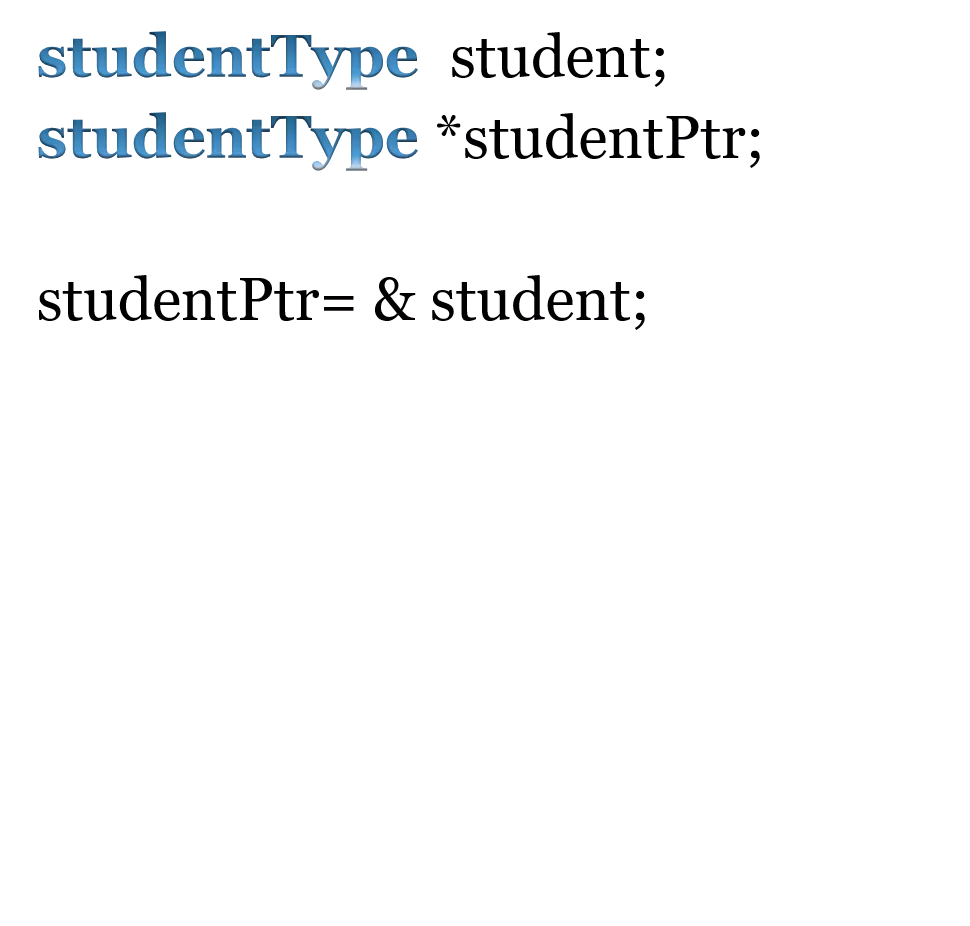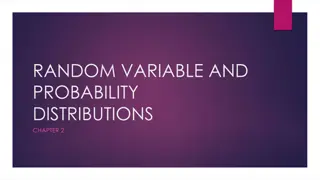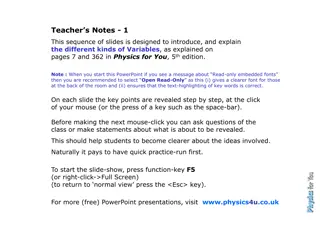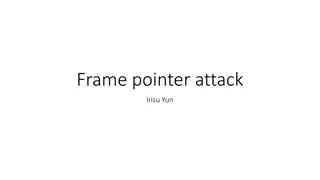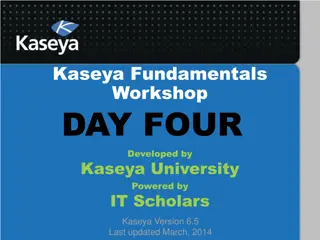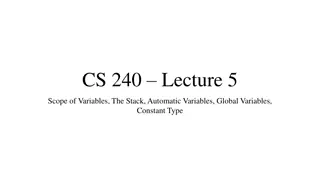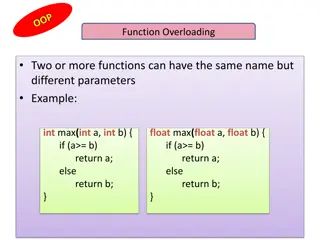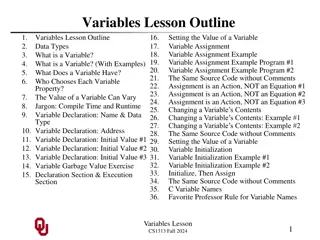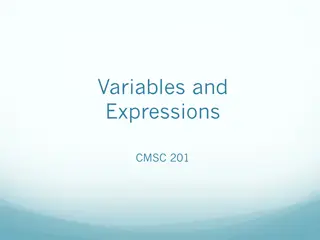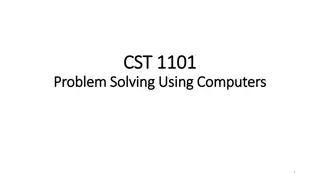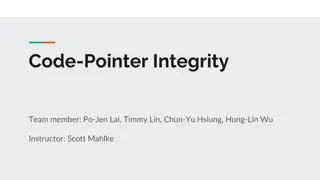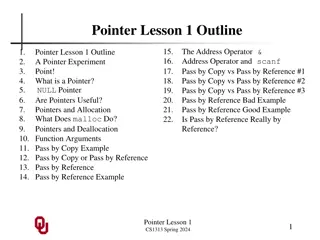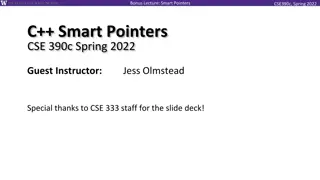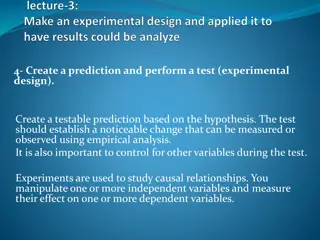Pointer Data Type and Variables in C++
This content delves into pointer data types and variables in C++, covering initialization, member access operators, and operations on pointer variables. Learn how to work with pointers effectively in C++ programming.
Download Presentation

Please find below an Image/Link to download the presentation.
The content on the website is provided AS IS for your information and personal use only. It may not be sold, licensed, or shared on other websites without obtaining consent from the author.If you encounter any issues during the download, it is possible that the publisher has removed the file from their server.
You are allowed to download the files provided on this website for personal or commercial use, subject to the condition that they are used lawfully. All files are the property of their respective owners.
The content on the website is provided AS IS for your information and personal use only. It may not be sold, licensed, or shared on other websites without obtaining consent from the author.
E N D
Presentation Transcript
Pointer Data Type and Pointer Variables II By:Nouf Aljaffan Edited by : Nouf Almunyif
Classes, Structs, and Pointer Variables by default, all members of a class are private. studentType student; studentType *studentPtr; Class studentType { char name[26]; double GPA; int sID; char grade; }; studentPtr= & student; private
Member access operator (.) Consider the expression *studentPtr.gpa. Because. (dot) has a higher precedence than *, the expression studentPtr.gpa evaluates first. The expression studentPtr.gpa would result in a syntax error, as studentPtr is not a struct variable, so it has no such component as GPA. The following statement stores 3.9 in the component GPA of the object student: (*studentPtr).gpa = 3.9;
Member access operator (->) C++ provides another operator called the member access operator arrow, ->.
#include <iostream> using namespace std; /////////////////////////////////// class classexample{ private : int x; public : void setX(int a ) {x=a;} void print(){cout<<"x= " <<x<<endl;} }; Example ob obpointer X /////////////////////////////////// void main (){ classexample ob; classexample *obpointer; ob obpointer = &ob; obpointer X 5 obpointer->setX(5); obpointer->print(); }
Initializing Pointer Variables C++ does not automatically initialize variables pointer variables must be initialized if you do not want them to point to anything. Pointer variables are initialized using the following two statements : p = NULL; p = 0 ; The number 0 is the only number that can be directly assigned to a pointer variable.
Operations on Pointer Variables The value of one pointer variable can be assigned to another pointer variable of the same type. Two pointer variables of the same type can be compared for equality, and so on. Integer values can be added and subtracted from a pointer variable. The value of one pointer variable can be subtracted from another pointer variable.
copies the value of q into p. After this statement executes, both p and q point to the same memory location. Any changes made to *p automatically change the value of *q, and vice versa.
Comparison The expression: p == q evaluates to true if p and q have the same value that is, if they point to the same memory location. Similarly, the expression: p != q evaluates to true if p and q point to different memory locations.
Decrement and increment ++ increments the value of a pointer variable by the size of the memory to which it is pointing. Similarly, -- the value of a pointer variable by the size of the memory to which it is pointing. Recall that the size of the memory allocated for an int variable is 4 bytes a double variable is 8 bytes a char variable is 1 byte. studentType is 39 bytes.
to explain the increment and decrement operations on pointer variables: The statement: p++; or p = p + 1; increments the value of p by 4 bytes because p is a pointer of type int. Similarly, the statements: q++; chPtr++; increment the value of q by 8 bytes and the value of chPtr by 1 byte, respectively. The statement: stdPtr++; increments the value of stdPtr by 39 bytes.
Cont. Moreover, the statement: p = p + 2; increments the value of p by 8 bytes. Thus, when an integer is added to a pointer variable, the value of the pointer variable is incremented by the integer times the size of the memory that the pointer is pointing to. Similarly, when an integer is subtracted from a pointer variable, the value of the pointer variable is decremented by the integer times the size of the memory to which the pointer is pointing.
Notes Pointer arithmetic can be very dangerous. The program can accidentally access the memory locations of other variables and change their content without warning. leaving the programmer trying to find out what went wrong.
Functions and Pointers A pointer variable can be passed as a parameter to a function either by value or by reference. In the function pointerParameters, both p and q are pointers. The parameter p is a reference parameter; the parameter q is a value parameter. Furthermore, the function pointerParameters can change the value of *q, but not the value of q. However, the function pointerParameters can change the value of both p and *p.
Example #include <iostream> using namespace std; // assume &i =0020F8B4 void f(int *j) {*j = 100; // var pointed to by j is assigned 100 cout <<"-----------------------------"<<endl; cout <<"in function f \n "<<"*j is : "<< *j<<endl; cout<<"j is " <<j <<endl; j++; cout<<"j++ is " <<j <<endl; cout <<"-----------------------------"<<endl; } int main() {int i =0 ; int *p; p = &i; // p now points to i cout << "befor function :"<<endl; cout<<"p is " <<p<<endl; cout<<"*p is " << *p<<endl << "i= " << i <<endl; f(p); cout<<"p is " <<p<<endl; cout << "i is " << i << endl; return 0; }
Pointers and Function Return Values In C++, the return type of a function can be a pointer. For example, the return type of the function:
#include <iostream> using namespace std; double * GetSalary() { Example // assume &salary=0041FD14 double salary = 10.5; double *HourlySalary = &salary; return HourlySalary; } Void main() { double hours = 5.0; cout << "Weekly Hours: " << hours << endl; cout << "Hourly Salary: " << GetSalary() << endl; cout << "Hourly Salary: " << *GetSalary() << endl; double salary = *GetSalary(); double WeeklySalary = hours * salary; cout << "Weekly Salary: " << WeeklySalary << endl; }
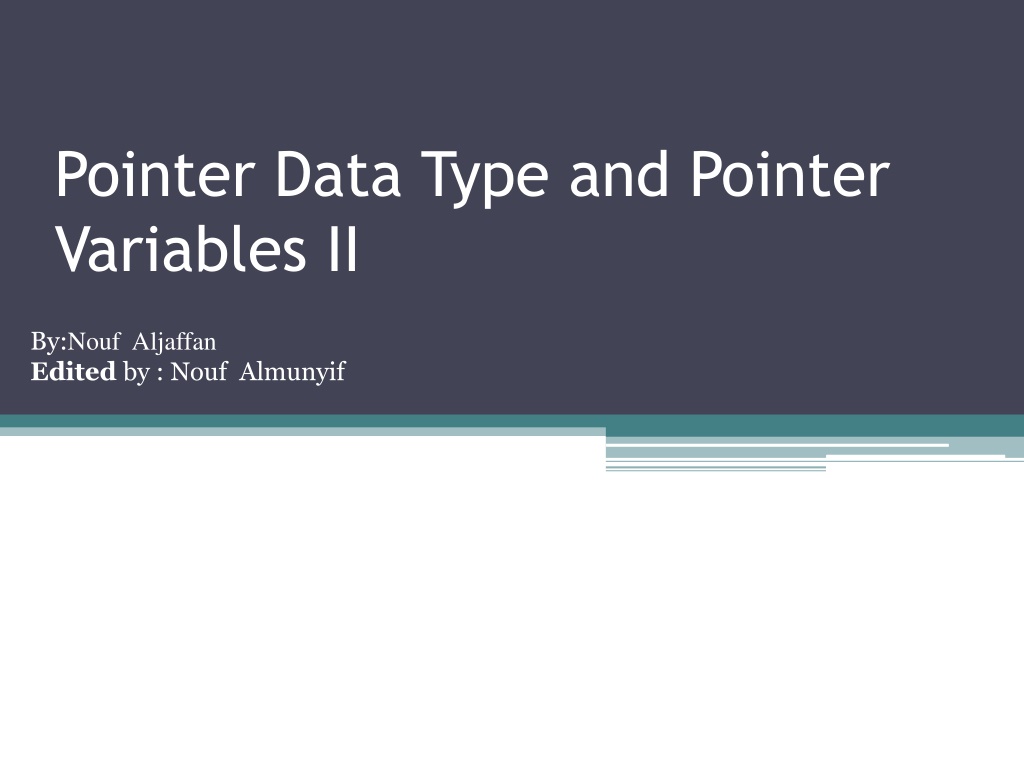
 undefined
undefined



























